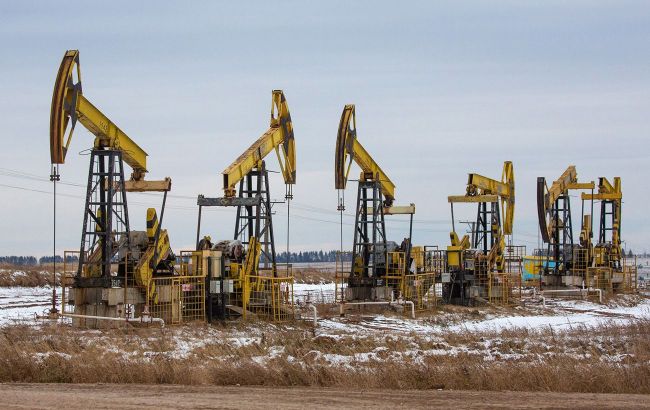World oil prices risen due to issues in U.S. and Russian Federation
 The attack by a Ukrainian drone has led to an increase in global oil prices (photo: Getty Images)
The attack by a Ukrainian drone has led to an increase in global oil prices (photo: Getty Images)
On Monday, January 22, oil prices on the global markets rose by approximately 2%. The reasons behind this increase were extreme cold weather in the United States, disrupting oil production, and a recent attack by a Ukrainian drone on an oil terminal in northern Russia, reports Reuters.
March futures for Brent crude oil settled at $80.06 per barrel, an increase of $1.50 (1.9%).
The futures contract for West Texas Intermediate (WTI) oil with delivery in February closed at $75.19, up $1.78 (2.4%), as the contract expired. The more active March WTI contract increased by $1.36 to $74.61.
"There are finally concerns in the market about genuine supply disruptions," said John Kilduff, a partner at Again Capital LLC, referring to the Ukrainian drone strike that led to a shutdown at part of the Novatek terminal.
According to Price Future Group analyst Phil Flynn, severe cold weather across the United States is constraining crude oil production in North Dakota and impeding extraction in other states.
More than 20% of production in this third-largest oil-producing state remained shut on Monday after it halved last week due to extreme cold and operational issues.
Simultaneously, Flynn added that stock markets continue to rise, indicating an increase in demand in the coming months.
"Pessimism about the economy is going away," he said.
However, according to IG analyst Tony Sycamore, fundamental indicators in the oil market may continue to exert pressure on prices.
According to him, oil production is on the rise, while growth prospects in China and Europe remain uncertain, and data expected this week is likely to demonstrate a slowdown in economic growth in the United States.
"Investors want to be bullish, but tepid data and a cautious narrative from policymakers keep them on the back foot," said Tamas Varga from oil broker PVM.
The latest forecasts for oil demand growth from the U.S. Energy Information Administration, the International Energy Agency, and the Organization of the Petroleum Exporting Countries (OPEC) for 2024 range from 1.24 million to 2.25 million barrels per day. At the same time, all three organizations anticipate a deceleration in demand growth in 2025.
Drone attacks on Russian territory and oil exports to China
In the night from January 20 to 21, Ukrainian drones attacked the oil terminal of the Maritime Trade Port in the town of Ust-Luga in the Leningrad region.
As a result of the attack, the operations at the Novatek plant were suspended. Novatek is a major supplier of oil to global markets and the Russian military.
Meanwhile, Russia has surpassed Saudi Arabia, becoming the largest supplier of crude oil to China in 2023. The world's largest oil importer has challenged Western sanctions by procuring substantial volumes of oil at discounted rates for its refineries.

